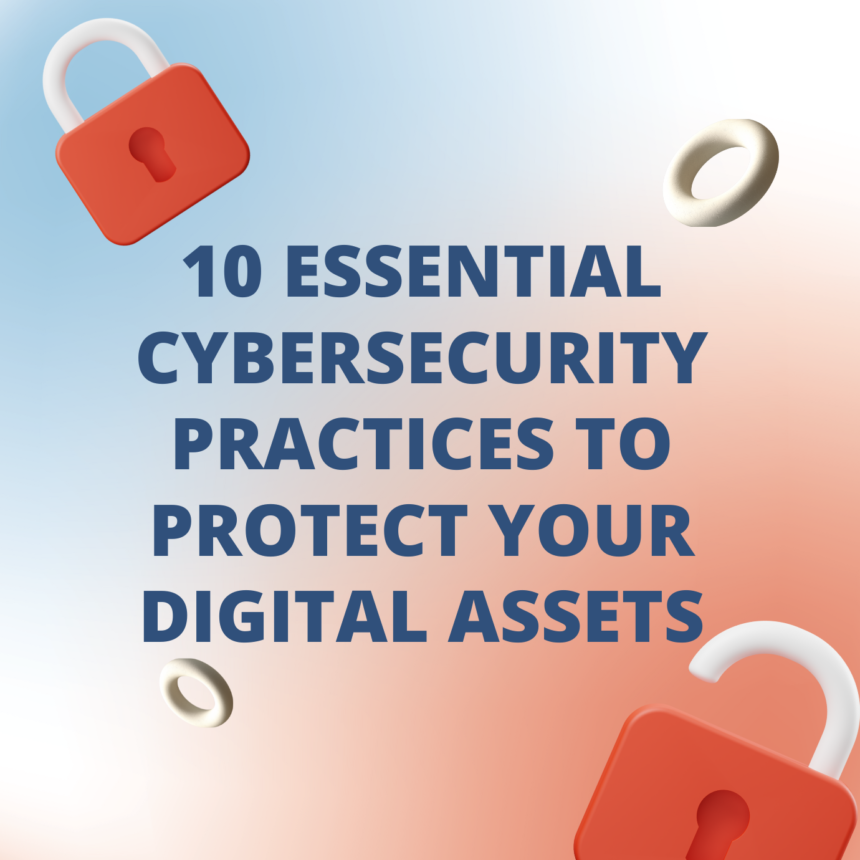In today’s digital age, it’s crucial to prioritize cybersecurity to protect your valuable digital assets from potential threats. Cybercriminals are constantly evolving their tactics, making it essential to stay vigilant and implement robust security practices. Here are 10 essential cybersecurity practices to safeguard your digital assets:
- Use Strong and Unique Passwords: Create strong passwords that include a combination of uppercase and lowercase letters, numbers, and symbols. Avoid using easily guessable information and refrain from using the same password across multiple accounts.
- Enable Two-Factor Authentication (2FA): Two-factor authentication adds an extra layer of security by requiring an additional verification step, such as a code sent to your mobile device, along with your password. Enable 2FA whenever possible to protect your accounts.
- Keep Software and Operating Systems Updated: Regularly update your software, applications, and operating systems. These updates often include patches and security fixes that address known vulnerabilities, reducing the risk of exploitation by cybercriminals.
- Beware of Phishing Attacks: Be cautious of suspicious emails, messages, or phone calls that ask for personal information or urge you to click on links. Verify the sender’s identity and double-check the URL before providing any sensitive information or clicking on links.
- Secure Your Wi-Fi Network: Change the default password and network name (SSID) of your Wi-Fi router. Use strong encryption (WPA2 or WPA3) and a unique password to prevent unauthorized access to your network.
- Backup Your Data Regularly: Regularly back up your important data to an external hard drive, cloud storage, or a secure backup service. This ensures that even if your digital assets are compromised, you can restore them from a backup.
- Use Antivirus and Firewall Software: Install reputable antivirus software and enable firewalls on all your devices. These security measures help detect and prevent malicious software and unauthorized access to your systems.
- Be Mindful of Public Wi-Fi Networks: Avoid accessing sensitive information or conducting financial transactions while connected to public Wi-Fi networks. If necessary, use a virtual private network (VPN) to encrypt your internet connection and protect your data.
- Educate Yourself and Your Team: Stay informed about the latest cybersecurity threats and best practices. Regularly educate yourself and your team members about potential risks, phishing techniques, and safe online behavior.
- Regularly Monitor Your Accounts: Monitor your financial accounts, online transactions, and credit reports regularly. Report any suspicious activity immediately to your bank or relevant authorities.
Remember, cybersecurity is an ongoing effort that requires continuous attention and adaptation. By implementing these essential cybersecurity practices, you can significantly reduce the risk of cyberattacks and protect your valuable digital assets.
